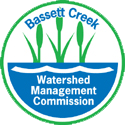News
Clean In and Clean Out . . that includes your bait, too
Tue, Aug 17, 2021Great news! 90% of Minnesota Lakes are still free of invasive species, so let’s keep it that way. This means, after a day of fishing, please don’t dump your leftover bait into the water before heading home. While dumping bait may seem harmless—maybe even helpful—it could potentially devastate a lake by introducing an invasive species.
Dumping bait in a lake is one of the numerous ways aquatic invasive species and other pathogens, like the deadly and invasive fish virus Viral Hemorrhagic Septicemia, more easily referred to as VHS, can be introduced into our lakes and rivers. When non-native species are introduced, they pose threats to the native plants and animals, human health and safety, the economy, and recreation – like fishing.
So, what should you do with unused bait? If you plan to reuse it, exchange the bait water with tap water so the lake water isn’t introduced to other lakes. Another option is to ask other anglers if they’d like to use it. If you don’t have any takers, dispose of it and its packaging in the trash. You should also clean off all your gear, including lines, nets, and buckets, before leaving the water access area. In other words, be clean on the way out.
TIPS FOR ANGLERS (info from Stop Aquatic Hitchhikers)
- CLEAN off plants, animals, and mud from gear and equipment including waders, footwear, ropes, anchors, bait traps, dip nets, downrigger cables, fishing lines, and field gear before leaving the water access. Scrub off any visible material on footwear with a stiff brush.
- DRAIN water from watercraft, motor, bilge, bladder tanks, livewell, and portable bait containers before leaving the water access. Replace with spring or unchlorinated tap water when keeping live bait before leaving water access.
- DRY everything completely when moving between different lakes or streams to kill small species not easily seen or wipe with a towel before reuse.
- DISPOSE of unwanted bait, fish parts, and packing materials, in the trash. Do not dump them in the water or on land.
- Use non-felt soled boots to further reduce the risk of spreading aquatic invasive species.
- Fish caught for eating or taxidermy should be cleaned at designated fish cleaning stations or placed on ice.
- Never dump live fish or other organisms from one water body into another.
Fishing isn't the only recreational activity that can introduce non-native species. All lake users have a responsibility to do their part, including operators of non-motorized boats such as canoes and kayaks. We are one humanity connected by water. Our actions impact others.

